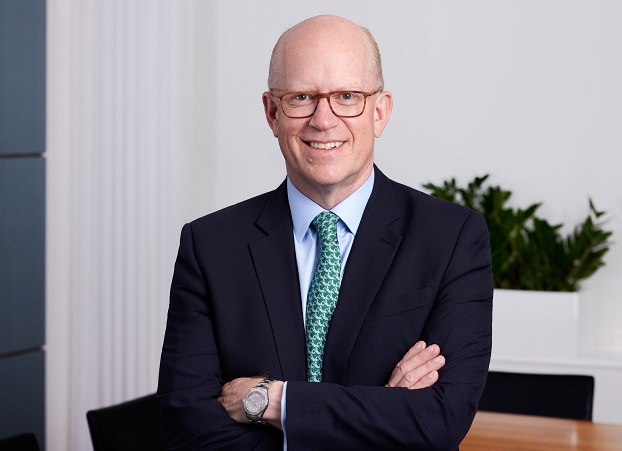In this new feature, International Investment is highlighting some of our stand-out Q&A sessions and interviews taken from our recent Virtual Events programme and video interiews.
In this transcript taken from this forthright and revealing interview - originally broadcast live from II's Middle East Forum on November 17, 2020 - International Investment Editor Christopher Copper-Ind speaks to David Coombs, fund manager of Rathbones Multi-Asset Portfolios
CCI: In a nutshell, what makes Rathbones stand out from what is, after all, a rather crowded multi-asset field?
DC: First of all, we have a suite of multi-asset funds, worth around £2bn in total, but we are only two fund managers in the team, myself and a colleague. We don't run by committee. We are directly accountable for every investment in those funds. Those funds are invested directly into companies, bonds, etc. So any mistakes are ours. We're fully accountable. Also, to be frank, we're relatively cheap compared to many products out there, in that we're not outsourcing to anybody.
CCI: How has the pandemic affected the investing strategy for Rathbones?
DC: Not very much is the relatively boring answer in many respects. I'm being slightly glib but then again, if you look at the growth in bond and equity markets this year, they're really just accelerating trends that were already there. The high street was already dying, we were already moving to digital economies, the power of computing is increasing not year by year any more but almost monthly.
So the distruption that was already occuring has been accelerated. Probably five years' worth of disruption has occured in six months. From an investment perspective it's been calm on the surface. Underneath it's been mayhem!
CCI: One of the traits at this time of covid has been that yields on bonds are very low. How is this affecting investors' journeys? And how are you protecting returns on portfolios?
DC: Well I've been doing this a long time. And in the past, you had a 60:40 portfolio, with 40% in bonds. Unfortunately that isn't really appropriate any more. It is different this time in that we have got negative bond yields. And it's a fact: the maths are against you in bond markets just now. So we've had to be a bit more innovative, with much more multi-currency exposure than we had in the past.
This is a much bigger part of our strategy than it was even five years ago. Brexit has been a part of this, as Sterling has been incredibly volatile. When you have negative interest rates you have redefine what is expensive. Is a 30-year gilt offering 1.5% more expensive than other options offering 2%? It's a constant battle. In the equity market we've lived with volatility for decades. But we now have huge volatility in bond markets too, and this has to be managed in a very different way to how it was handled five years ago.
CCI: Could you talk us through some of the structural trends that would typically be there for a Rathbones investment?
Let's take technology as an example. It's the darling of investors at the moment, but this makes me nervous--even though I think it will surely generate some of the best gains in the next five to 10 years. So how do you do this yet not get caught up in the hype and noise?
And I think you have to be much more specific when you look at the tech sector. I want to invest in real tech, ie companies that bring computer power to increase efficiency and production. In a world of low growth, you need to be improving productivity. And not just in manufacturing, but across the board including healthcare systems. And what's been apparent with covid-19 is that almost every healthcare system across the world, be it public or private, has not coped particularly well with this pandemic.
What I don't mean by technology is what I call dotcom: the M&S website test. Uber is not tech stock. It's a taxi company enabled by technology. Netflix is a TV company enabled by technology. Airbnb is a travel company again enabled by technology. That's the difference, and I don't buy shares in Facebook or Airbnb or Netflix, because they're not tech companies. Healthcare and technology are now increasingly intertwined. This is where we're going to see big growth and big opportunities along the way, even though some of the change is inevitably going to be painful. Healthcare in 2020 is where the banks were in 2008.
To view all of the sessions from the recent II Middle East Forum click here.









